Complete the following reaction:
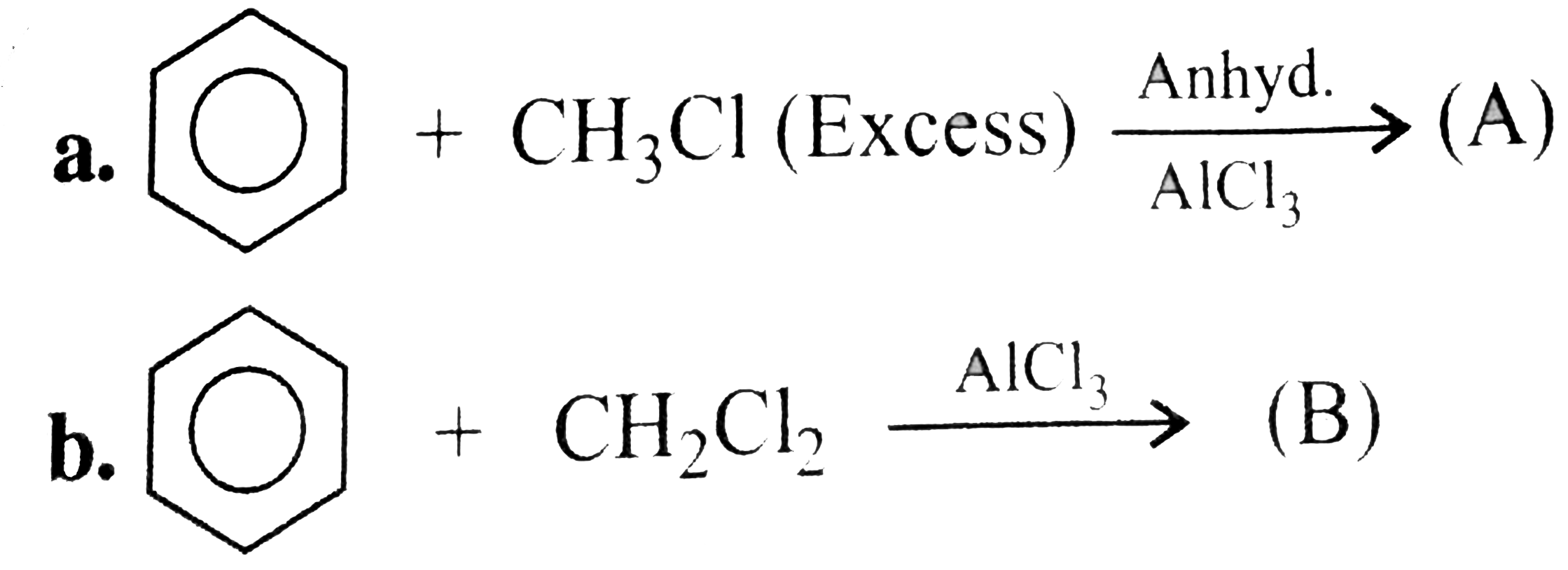
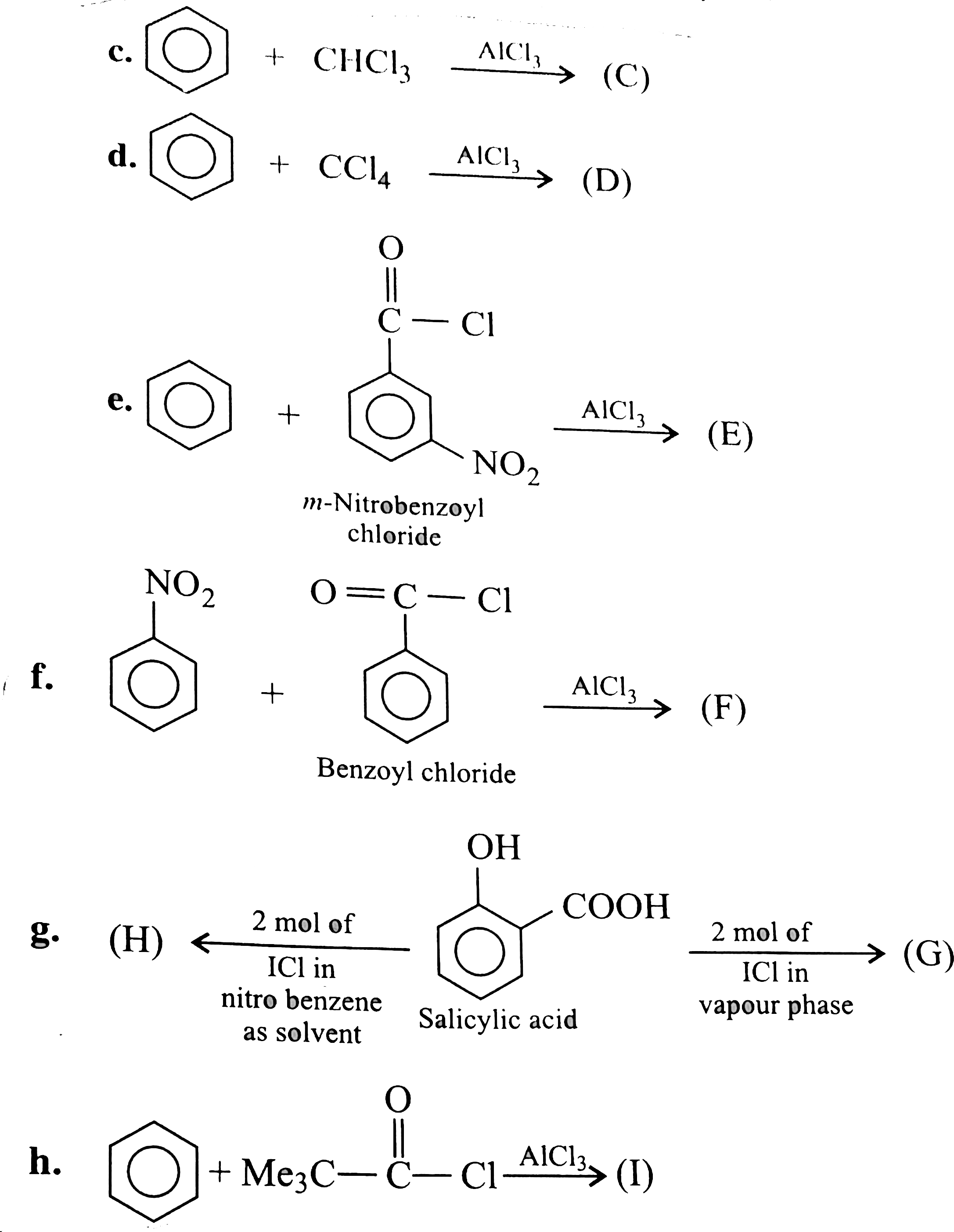
Text Solution
a. 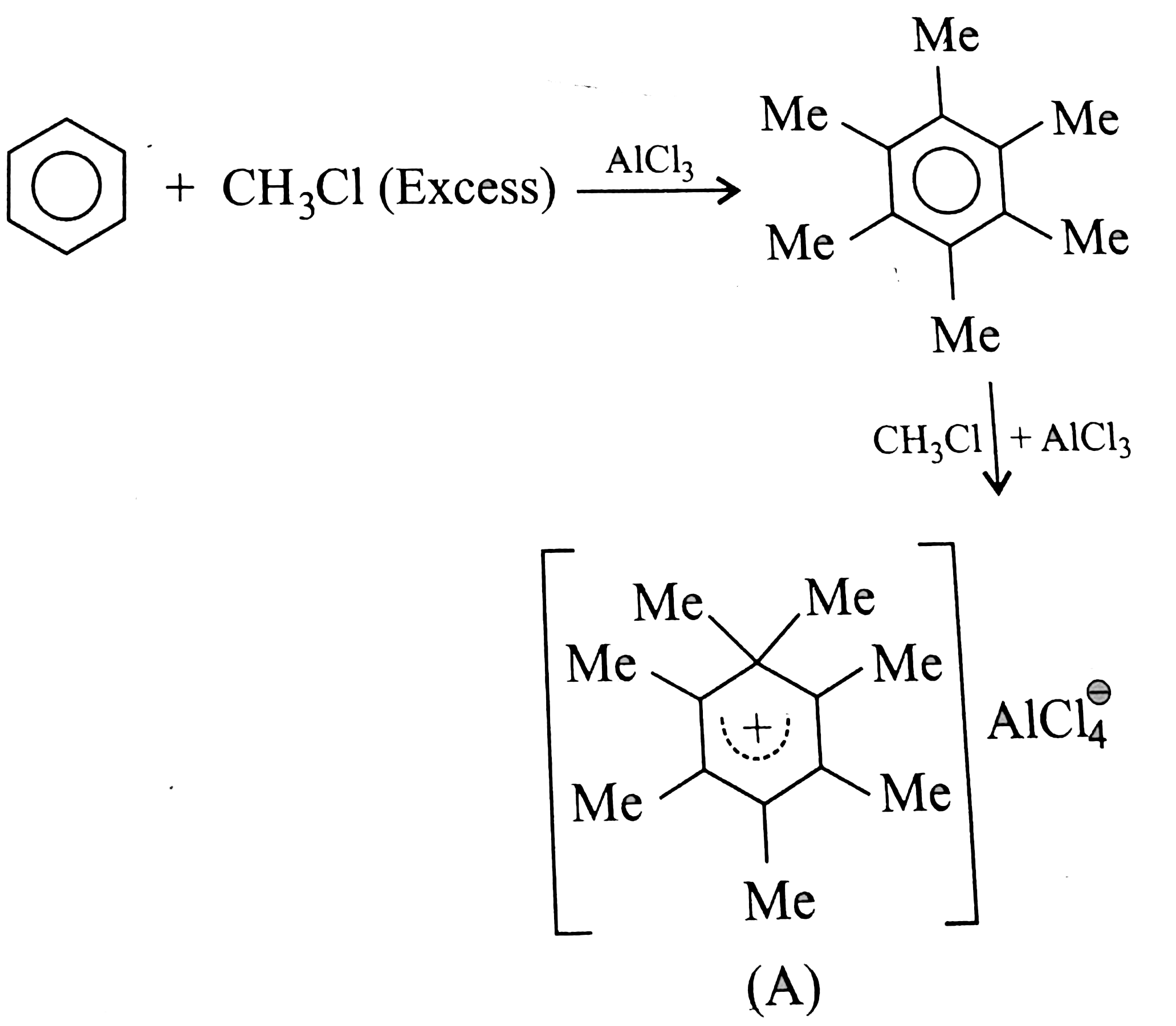
The formation of compound (A) proves the existense of σ− complex. This compound has been isolated.
It is impossible to stop the reaction after 1 mol of CH3Cl is added, since the compound formed (e.g., touene) is more reactive than benzene and then next compound is more reactive than toulene, and so on.
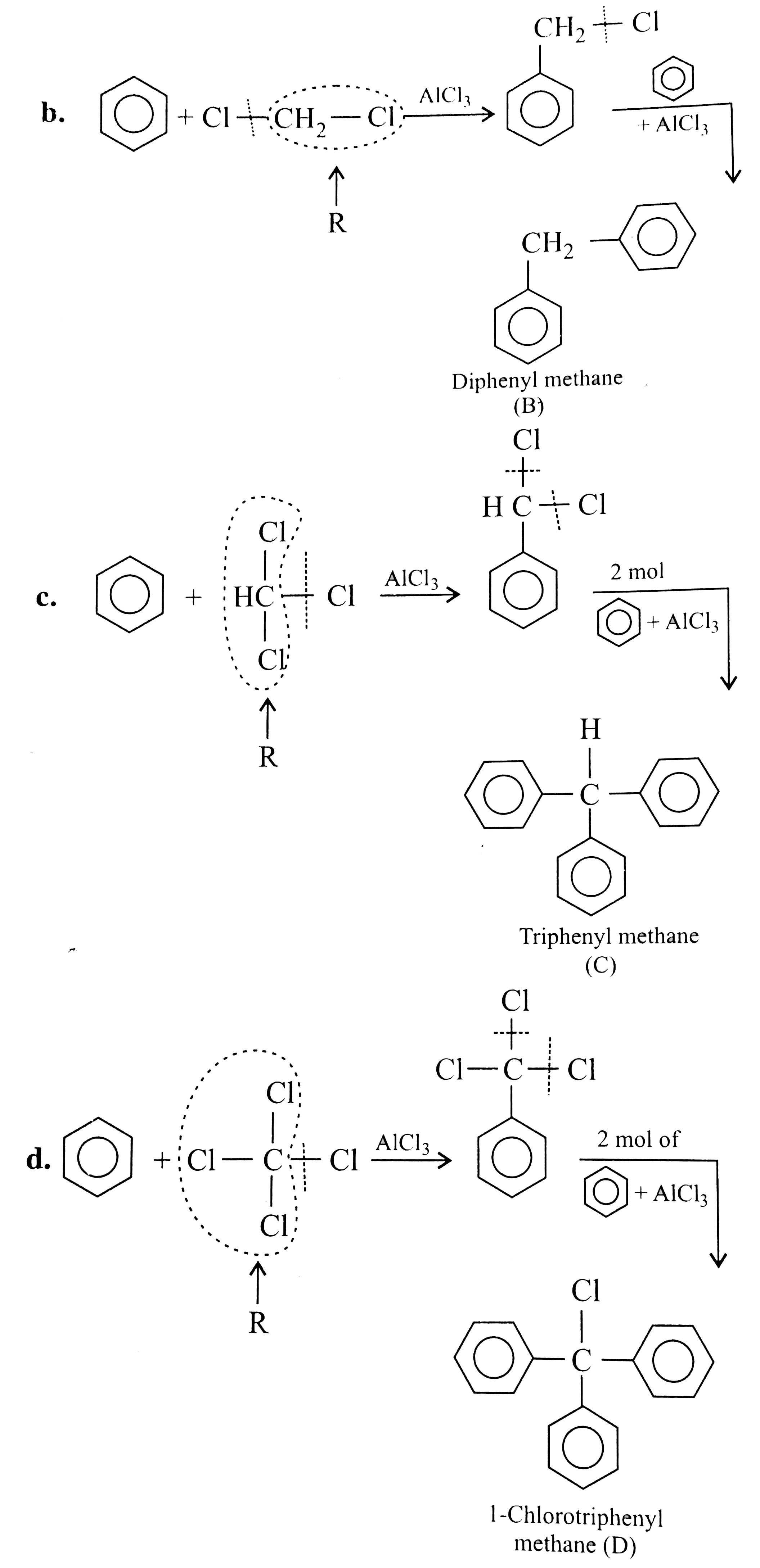 It is impossible to stop these above reaction after the addition of a mole of these compounds. In (d) the reaction stops after three rings have been substitubed becuase of the streric hindrance of having four phenyl groups on a single C atom.
It is impossible to stop these above reaction after the addition of a mole of these compounds. In (d) the reaction stops after three rings have been substitubed becuase of the streric hindrance of having four phenyl groups on a single C atom.
e. 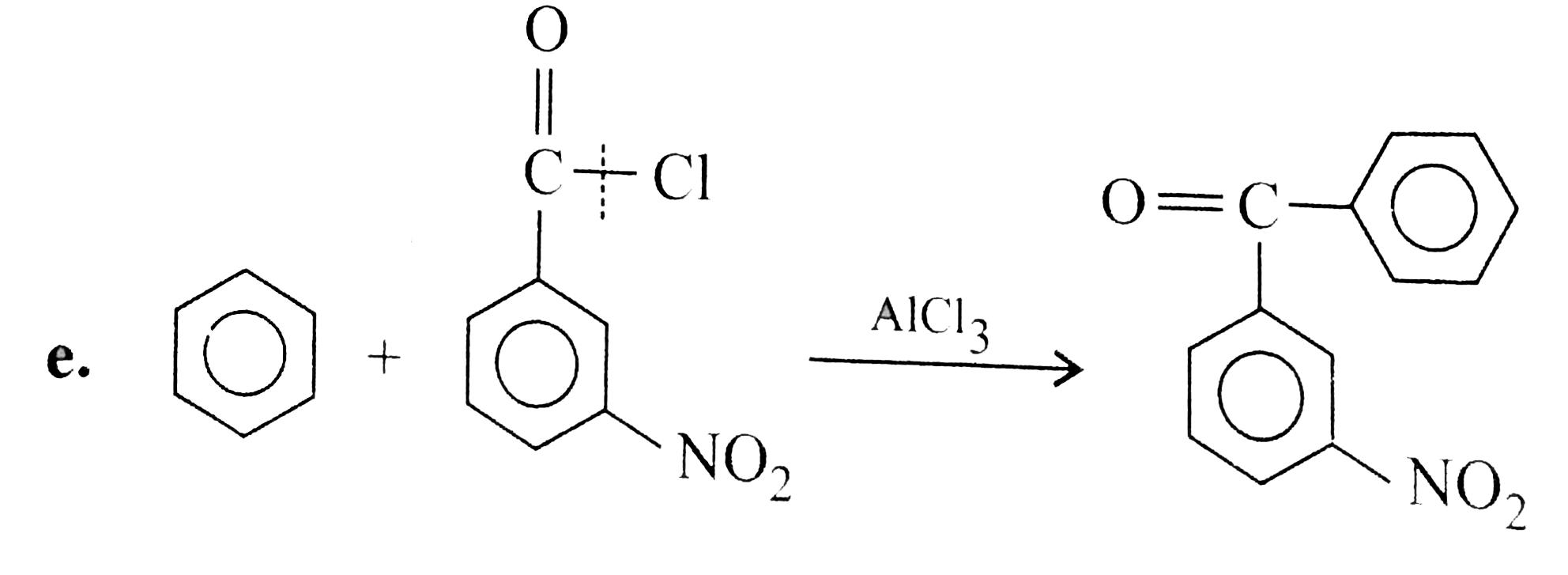 F.C acylation of nitrobenzene does not take place since it contains EWG[(−NO2) group],
F.C acylation of nitrobenzene does not take place since it contains EWG[(−NO2) group],
g. In vapour (i.e., at high temperture), (I−Cl) gives radical.
I+ClΔ−−−−−−→.I+.I→I2+C.I
Here, .I being unstable combines to from I2. So this reaction is used for chlorination.
In nitrobenzene, (I−Cl) is polarised to giveI⊕ and Clo− As I⊕ is an eledctrtophile, this reaction is used for iodination.
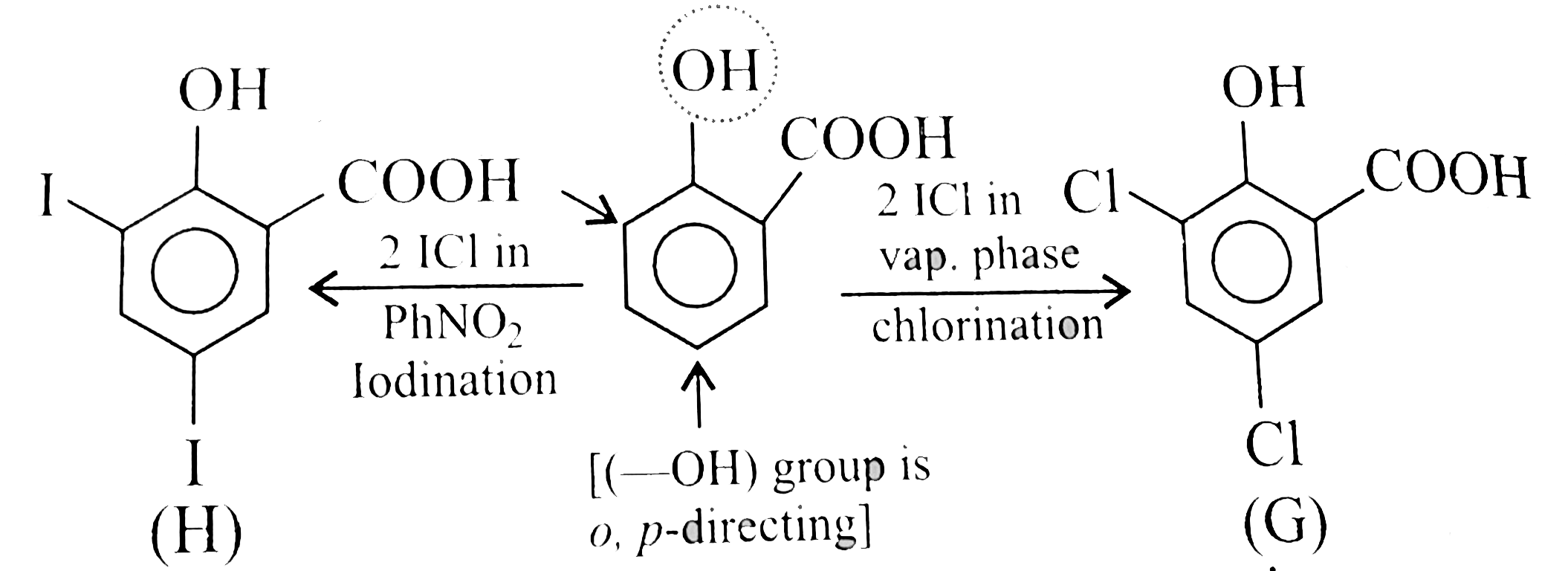
h. An aclium ion is stablised by two resonating structures (I) and (II). Structure (II) is more stable than (T) becuase both C and O have an octet and (II) has four covalent bonds while (I) has three.
So (II) is the main resonanace - contributing strucutre:

The aclium is much more stable than any alkyl carbocation and so it cannot rearrange to a more stable cation. So in aclation reaction, the rearranged product is not obtianed. But t- butuyl carbocaiton is more stable than acylium ion because of hyperconjugation (nine H.C. structures).

|
Updated on:21/07/2023
Topper's Solved these Questions
- BOOK - CENGAGE CHEMISTRYCHAPTER - AROMATIC COMPOUNDS AND ALKYL AND ARYL HALIDES EXERCISE - Solved Examples21videos
AROMATIC COMPOUNDS AND ALKYL AND ARYL HALIDES
- BOOK - CENGAGE CHEMISTRYCHAPTER - AROMATIC COMPOUNDS AND ALKYL AND ARYL HALIDES EXERCISE - Solved Problems37videos
AROMATIC COMPOUNDS AND ALKYL AND ARYL HALIDES
- BOOK - CENGAGE CHEMISTRYCHAPTER - APPENDIX INORGANIC VOLUME 2EXERCISE - Short Answer Type179videos
APPENDIX INORGANIC VOLUME 2
- BOOK - CENGAGE CHEMISTRYCHAPTER - BIOMOLECULESEXERCISE - Exercises Archives (Analytical And Descriptive)8videos
BIOMOLECULES

